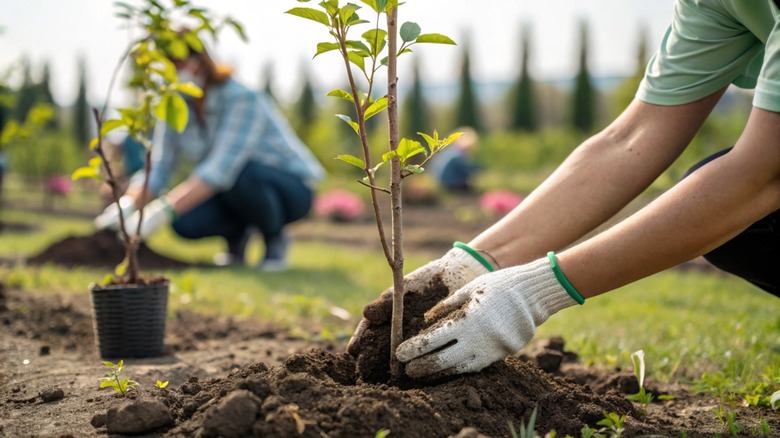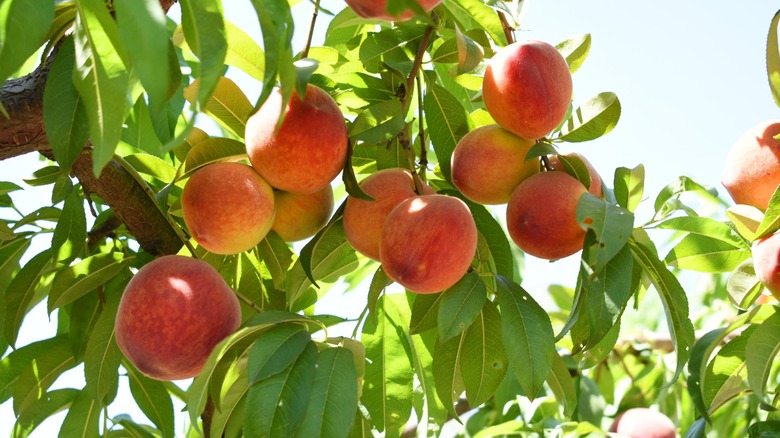The Fast Growing Fruit Trees That Are Worth Adding To Your Garden
We may receive a commission on purchases made from links.
From filling pies to adorning crumbly cobblers — to say nothing of eating the sun-warmed fruit straight from your hand — there's nothing like fresh peaches. Having delicious fruit right in your yard is a great reason to grow a peach tree, but that's not the only one. Although they won't bear fruit for a few years, peach trees grow quickly, ensuring that shade and privacy come about rapidly. Additionally, the floral fragrance of gorgeous peach blossoms will perfume your garden exquisitely! Yummy, ornamental, and useful? Sign us up!
Autumn, along with spring, is a great time to plant peaches. Aim for early fall, well before the first chill, so that the tree can get established before it enters winter dormancy. What type of peaches you grow will depend largely on what agricultural zone you live in. Technically, peaches can be grown in zones 4 to 10, but they do their best in 6 to 8. If you live in a colder climate, you will want to select peaches that are hardier against frost and which ripen in the warmest months, ensuring that you get the juiciest fruit.
Growing peaches isn't particularly hard if you have some basic gardening knowledge and the right tools for the job. Remember that your trees won't bear fruit until they are around three years old. At that point, assuming that they are well-tended, your biggest concern will be how to freeze peaches without browning, since you'll have so much delicious fruit on hand!
Growing a peach tree isn't difficult
When it comes to planting, ideally you want to find a young peach tree that is around a year old, since older trees will not fruit as well. Make sure you can plant your tree in the ground the same day you bring it home to avoid stressing out your sapling. It also pays to do some research on your soil before bringing your tree home. After all, your peach tree will hopefully be in place for 15 years, give or take, which means its placement is a big decision. Furthermore, peaches appreciate slightly acidic soil. Consider getting a soil testing kit to determine whether the soil in your chosen spot is right for your tree or if it needs to be treated before your new sapling comes home.
Once your tree is planted, it will need full sunlight, lots of water, and good fertilization. Don't throw out your plastic water bottles, as these can be a great source of drip irrigation in your garden if you can't manage to water your tree twice a week. You can buy fertilizer especially for peach trees, but you can also potentially use home remedies to feed your tree and keep it happy. To repurpose leftover potato water in your garden, for example, simply strain it and let it cool. Weeding around the base of your tree is important, as weeds can vie for nutrients and water with your tree and steal resources. If you decide to use a pesticide, make sure that it is labeled for use with fruit trees.

